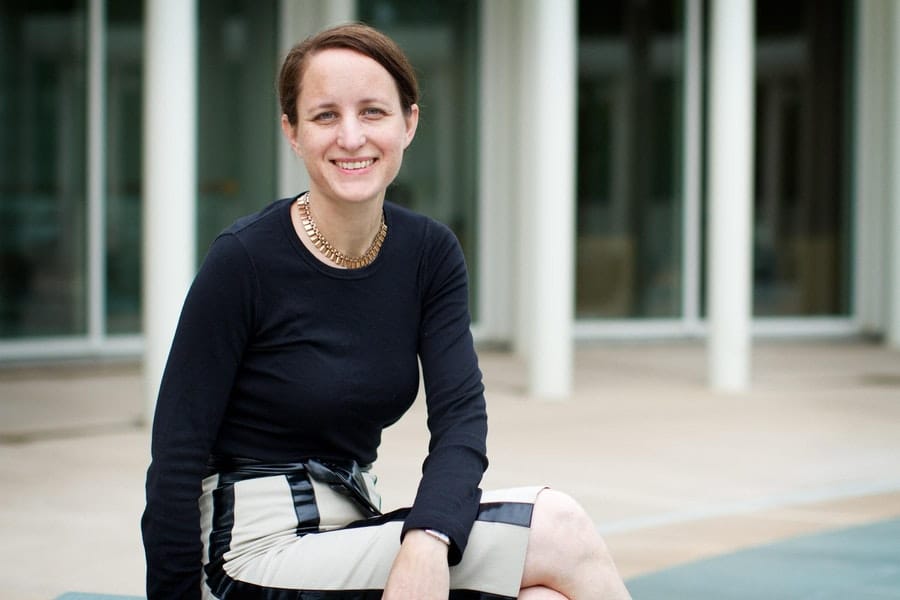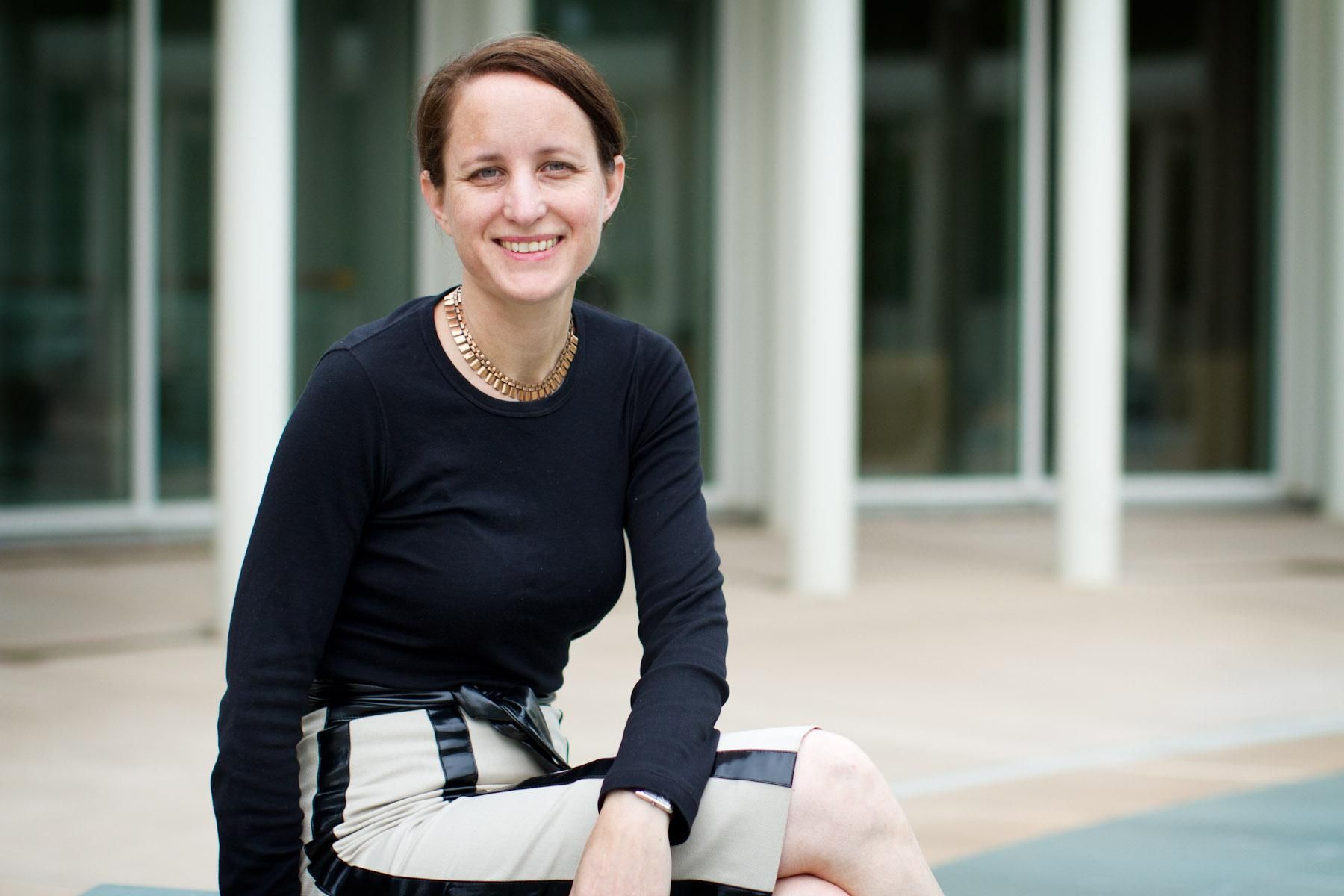Interview: Sophia Rosenfeld, PhD
The author of "Democracy and Truth: A Short History" responds to the moment

Sophia Rosenfeld, PhD, is a historian specializing in European and American intellectual and cultural history, with a special emphasis on the Enlightenment and the legacy of the 18th century for modern democracy. She’s also an award-winning author whose articles and essays have appeared in leading scholarly journals, as well as the New York Times, the Washington Post, and the Nation. From 2013-17, she co-edited the journal Modern Intellectual History.
Her two most recent books are “Common Sense: A Political History,” and “Democracy and Truth: A Short History.” (I quoted from the latter in a post last week.)
Rosenfeld received her BA from Princeton and her PhD from Harvard. She has held fellowships from the Guggenheim Foundation, the School of Social Science at the Institute for Advanced Studies, the Mellon Foundation, the Remarque Institute at NYU, and the American Council of Learned Societies, as well as visiting professorships at the University of Virginia School of Law and the École des Hautes Études en Sciences Sociales. Before joining the University of Pennsylvania, she was Professor of History at Yale University and, before that, at the University of Virginia.
This interview was arranged on the heels of last week’s insurrection. Rosenfeld was kind enough to spend some of her weekend answering the following questions.
Enjoy.
Q: What led you to becoming a historian and one focused on your particular areas of expertise?
Rosenfeld: I began as a historian of the Enlightenment and French Revolution. Over time, I realized that my interest in this period stemmed in large part from how much it grounds, still, how we think and talk about politics today — and not just in obvious ways, as in the contents of constitutions drawn up in that era, but even when it comes to how we conceive of truth or “the people” or language itself. So my purview has expanded both geographically and temporally over the course of my career; I think of myself now as a historian of modern democracy. I also am usually most interested in exploring those aspects of our political culture that are so ubiquitous or taken-for-granted — for example, the very idea of common sense — that they doesn’t really seem to have any kind of backstory until it is brought to light.

Q: Reading your 2018 book (“Democracy and Truth: A Short History”), I was struck by how it felt like it came a place of urgent concern. What events and trends do you recall drove you to crack open Word and start writing? What was the writing process like?
Rosenfeld: Like many other people, I became a news junkie at the start of the Trump Administration, trying to make sense of what seemed so shocking (then and now) in contemporary terms. It was hard to put down my phone as long as something new and astonishing seemed to be happening constantly! Then it occurred to me that the way I might be able to contribute to the public conversation was by trying to put what was happening now in a deep historical perspective, not just one that went back to the Obama presidency or the rise of Facebook and Twitter or even the Reagan years but instead to the origins of modern democracy. A few small media pieces and talks on topics like a resurgence of conspiracy theory and the fracturing of established notions of truth then turned into the foundation of a short book that I would call a history of the present.
Q: Since 2018, it seems that the misinformation engines have only become more entrenched and sophisticated. Why do you think this is? Are there any analogs from the past worth raising here?
Rosenfeld: Misinformation is not new. Neither is disinformation, which is to say, deliberate forms of misinformation. History has always been driven in part by unfounded rumors. Even today’s rumors, which often turn on stories of child abduction or mass poisoning and the evil Jewish masterminds behind them, are not particularly new in substance even as they incorporate newer elements, like the dangers of 5G.
What is new is the swiftness and scale with which rumors and falsehoods can circulate, thanks to the Internet (as opposed to orally transmitted information, printed pamphlets, or even radio and TV).
What is new is how they are being reinforced both from the top (starting with the US President and other world leaders) and from the bottom (anonymous posters on social media, for example), who often operate in a kind of synergistic way. What’s new is also the degree of mistrust of traditional sources of vetted information — meaning credentialed experts, their institutions, and their methods alike — in light of the explosion of unvetted and often explicitly partisan information now available everywhere.
In the 1990s and early 2000s, it seemed to many people as if the Internet would put all of knowledge and truth about what was going on in the world, moment by moment, at everyone’s fingertips. Today, it often seems as if the Internet, with our aid, has done the opposite.
Q: The power of norms seems to be key to a maintaining an addressable cultural history. What norms around the truth do you think have been neglected, abused, or forgotten over the past years? What happened?
Rosenfeld: A key norm on which democracy depends is that most people are telling the truth or something close to it most of the time — otherwise, communication at every level would collapse. But another key norm on which democracy depends is the principle of free speech, which is enshrined in law at least when it comes to the government’s actions. And for all the wonderfulness of the idea of free, unfettered communication and the right to dissent, it is now apparent that that norm has also produced something dangerous and unanticipated: a flood of information, too big and unwieldy in scale to constitute a “marketplace of ideas,” much of it false, and few ways to stem or sort it. This is a serious issue for the future.
Q: In scholarly communication, the terrain has become uncertain at the same time, with preprint servers, predatory publishers, and various unreviewed repositories. How do you view these changes?
Rosenfeld: Scholarly communication — even if it is and should be a tiny part of the overall world of communication — should be a bulwark, to my mind, against a kind of “anything goes” culture in which every idea is as good as the next one. I am not, obviously, in favor of predatory publishers, but I worry that if everything in the humanities and social sciences goes the way of an unvetted blogpost, only the biological and physical sciences will inspire the kind of trust that comes with having consensual notions of truth derived from peer review and editorial oversight at their core. And while open platforms have certain advantages in terms of the democratization of both the production and consumption of knowledge, they run the risk of offering everything the same degree of legitimacy, especially in the eyes of people who are not informed enough or interested enough to check the sources of claims. In this way, the web is very different from a library, and not just in terms of scale; when the latter was the starting point for reference work, professional referees, publishers, and book buyers all acted as gatekeepers, determining what information was “good” information and sidelining the rest. This is a difference that schools will have to change their curricula to make evident to young people.
Q: The power of social media to affect politics from afar — moderated by software written largely by elite college-educated white males in California — has been well-documented, in India, Pakistan, the US, the UK, France, Egypt, and elsewhere. How do you put this kind of activity in a historical context? What is happening here?
Rosenfeld: I am not the right person to explain how bias is built into software. But we are all aware by now that algorithms are created by engineers at online platforms to give people more of what they already want and also to highlight the sensational (which often means the exaggerated or patently false). That’s because it means eyeballs will stay glued longer to the screen and additional advertising revenue will accrue.
Of course, all forms of media not sponsored by the state, from the New York Times to NBC News to Random House in the US case, offer content with profit-driven motives in mind.
A free press has always meant a commercial press in large part, and this fact has shaped both what has gotten heard and who has gotten heard to this day. But social media and arguably our search engines too are uniquely designed to escalate and reinforce the false along with the true in ways that, at worst, stir up mob actions of a variety of kinds, from seditious insurrections (i.e., what happened in Washington last week), to attacks on particular religious or ethnic or racial groups, to public health disasters, right along with welcomed forms of protest and dissent.
Q: In studies of misinformation by Benkler et al, they talk about “truth-seeking organizations,” which seem to have been sidelined in the era of Big Tech. What is their role going forward?
Rosenfeld: In this moment, I am wary of all predictions. Historians are definitely better at explaining the past than prognosticating about the future. But science and scholarship alike have depended since the rise of the modern state, meaning from about the 17th century in the Western world, on a variety of institutions to establish factual truths: state agencies, universities, learned societies, libraries and archives, scientific bodies. Since the 19th century, many of these have become international. But these same institutions — think of the World Health Organization — are often under assault today, their validity widely challenged both by leaders of nations and particular political parties, and by a large subset of the population. That is partly because of the rise of many of the issues we’ve been talking about here, including the emergence of so many alternative sources of information, right and wrong, from so many new quarters. But as I try to explain in “Democracy and Truth,” it is also because of some of the failures of the culture of expertise, including its exclusivity and technical jargon.
Until there is more give-and-take in the world of knowledge between populists, on the one hand, and technocrats, on the other, we will be stuck with the situation we are observing today.
Related Note
An analysis by “The Geyser” of the top 100 donors for seven prominent elected officials stoking or obfuscating last week’s insurrection— Ted Cruz, Jim Jordan, Cindy Hyde-Smith, Josh Hawley, Kevin McCarthy, Steve Scalise, Mo Brooks — shows money coming from some scholarly non-profits, publisher-related PACs, and universities. With employees flexing their moral muscles these days, you may want to ask your employer to clarify where they stand. Some companies have been quick to respond — suspending political funding, firing those involved, and limiting access to key tools.